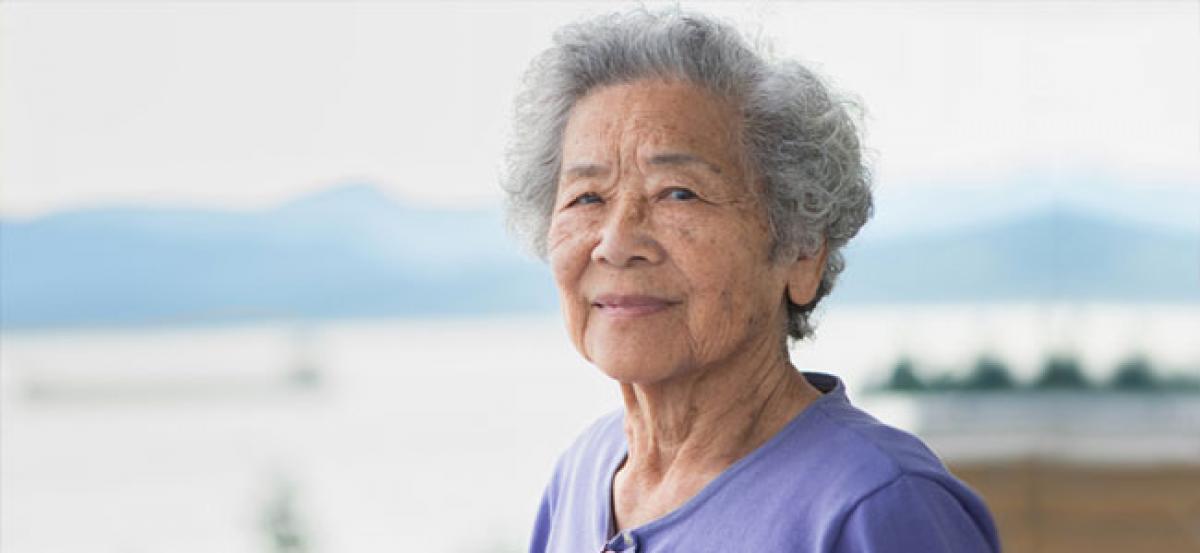Live
- BJP urges EC to stop Cong’s ‘Guarantee Cards’ campaign aimed to 'induce voters'
- Congress cheated Madigas: Dr. RS Praveen Kumar
- CBDT signs record 125 pacts to ease tax payments by big multinational firms
- Kamal Nath accuses BJP of ‘threatening’ Congress leaders in Chhindwara
- Odisha: BJP, BJD allege violation of MCC
- PM Modi lands in Guwahati to kickstart poll campaign
- ‘100 day action plan’ is PM Modi’s signature style for setting goals and meeting targets
- BJP will change the Constitution if they come to power again, says Priyanka Gandhi
- BJP-led NDA to cross 390-mark in Lok Sabha polls, predicts India TV-CNX survey
- Haier launches new TV series in four sizes in India
Just In

Sociability is the human tendency to seek out companionship, social relationships and friendship. It is the human urge to engage in a close knit union with other humans, devoid of material advantages. Such connections lead to sentimental and cognitive reassurance dispelling loneliness In the lives of elders.
Sociability is the human tendency to seek out companionship, social relationships and friendship. It is the human urge to engage in a close knit union with other humans, devoid of material advantages. Such connections lead to sentimental and cognitive reassurance dispelling loneliness In the lives of elders.
With the loss of a spouse, close friends and relatives, elders who are fortunate to bond with others in similar situations tend to share their emotional hurdles and be supportive towards each other. Realising that one is not alone in their anguish and sharing experiences, helps to lessen the impact of painful circumstances.
THE AGEING PROCESS
Ageing is an inevitable aspect of the life cycle. With progression, as years add on to life, it reaches a stage where the individual reflects back on past attainment and feels the onset of the closing period in his/her lifespan. The acceptance is not easy, nor is the many facets of ageing, as it requires flexibility and advanced coping skills. Also, the absence of disease as health for this demographic. It’s controversial, as health in the elderly is multifaceted, spanning cognitive, emotional, social and physical well being.
The management of pain, loss of mobility and independence, dependency for the completion of ADL’s impact the assessment of health. Research shows the psychological and sociological factors influence the ageing process and the ability to age successfully has a correlation to the elders religious beliefs, social relationships, self esteem, socioeconomic status, coping skills and other factors.
DEPRESSION AND AGEING
Depression occurring in early life stems from genetic factors, lie experiences and circumstances beyond our control, whereas depression that first develops in later life is linked to physical health and loneliness. The common belief that older people suffer from depression and age alone , is the major casual factor is an anomaly. Many a times, difficulties and experiences related to early childhood and youth emerge as casual links to social, physical and psychological disorders leading to depression while ageing.
Studies indicate that the oldest of the old, may better at coping with depression. An elderly person with sound health has a relatively lesser risk of depression than those suffering from chronic disease. This is understandable, as chronic pain, the side effects of medication and the psychological consequences of living with the disease with its inevitable restrictions on lifestyle and socialisation, result in loneliness and isolation leading to depression.
PSYCHOLOGICAL WELL BEING
An increase in depressive symptoms with age are common, impacting the well being and quality of life of the elderly. These depressive symptoms are pointers to the aberrations in psychological well being, functional health and impact longevity. Cognitive decline, difficulty in carrying out activities of daily living and increase risk of mortality, are attributed to depressive symptoms.
Feeling of loneliness is subjective in nature, relating to individual expectations from social relations. Loneliness may be due to external factors attributed to society and customs or internal, like individual personality and psychology. Whatever the cause, loneliness leads to serious health related consequences. It is also a major cause for suicidal thoughts and attempts.
LONELINESS AND ANXIETY
Loneliness while ageing could be attributed to migration or lessened connections with ones culture, losing friends and family to death, social disengagement after leaving work, loss of friends and family members due to relocation and inability to participate in the local community activities. All this is due to less of socialising which leads to anxiety, withdrawal, lack of motivation and sadness which leads to anxiety, withdrawal, lack of motivation and sadness which disguise the symptoms of loneliness.
FORGING NEW RELATIONSHIPS AND BONDS
Mere social interaction as a means of alleviating Loneliness is not the answer. Deep down, it involves an internal control on the type of interaction and elders tend to be very choosy! Most family relations tend to be obligatory whereas striking friendship is a matter of choice, hence for many elderly, the time spent with family may be less enjoyable than a visit to a neighbour or someone of their age group.
Experts point out that elderly people forge a bond with people of the same age group and those with similar thought processes. Thus, with increasing age, it is possible that people tend to lose their friendship circle and find initiating new friendships intimidating.
However, healthy people with greater material and intellectual aid are able to harness more social capital inured to be able to seek and forge new relationships like volunteering, giving back to society, mentoring the inexperienced, finding companions to pursue new hobbies all these activities add to well being as one ages.

© 2024 Hyderabad Media House Limited/The Hans India. All rights reserved. Powered by hocalwire.com







